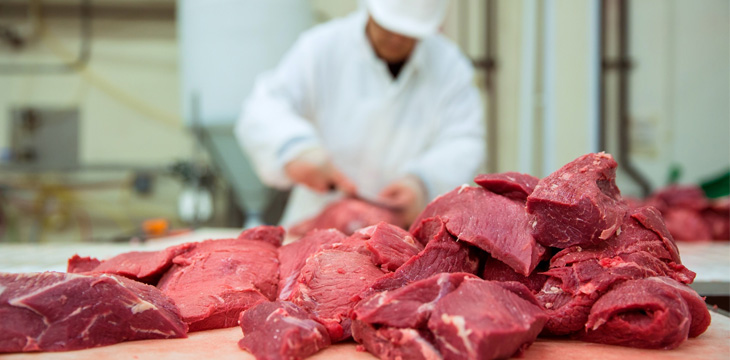|
Getting your Trinity Audio player ready...
|
The FSA plans to extend the program to other farmers and individual animals later.
In an announcement yesterday, the UK Food Standards Agency (FSA) said that they have finished a pilot run for blockchain technology implementation for food supply chain.
“The Food Standards Agency has successfully completed a pilot using blockchain technology in a cattle slaughterhouse. It’s the first time blockchain has been used as a regulatory tool to ensure compliance in the food sector,” they wrote.
The FSA’s blockchain project was initially implemented on a cattle slaughterhouse, and the FSA plans to extend the program to other farmers who can record data about individual animals in their farms next month. Should things go well, the FSA hopes to have more facilities adopt the system.
“This is a really exciting development. We thought that blockchain technology might add real value to a part of the food industry, such as a slaughterhouse, whose work requires a lot of inspection and collation of results,” Sian Thomas, Head of Information Management, said.
“Our approach has been to develop data standards with industry that will make theory reality and I’m delighted that we’ve been able to show that blockchain does indeed work in this part of the food industry. I think there are great opportunities now for industry and government to work together to expand and develop this approach.”
Food safety and transparent supply monitoring is one of blockchain technology’s biggest applications. Chinese e-commerce giant JD.com also employed blockchain technology earlier this year to track meat and ensure the supply chain remains free from illegal and counterfeit meat—like rats, fox, and mink being passed off as mutton. This has become a big problem in the country, with at least 20,000 tonnes of fake meat being nabbed by authorities in 2013 alone.
Walmart has also been doing the same thing, partnering up with IBM to record relevant information on food supplies and quickly identify sources in case of contamination. Nestlé SA, Dole Food Co., Driscoll’s Inc., Tyson Foods Inc., and Unilever NV are reportedly in on the project too. This would lead to a more immediate response and get suspect items off the shelves before consumers pick them up.

 02-25-2026
02-25-2026 




